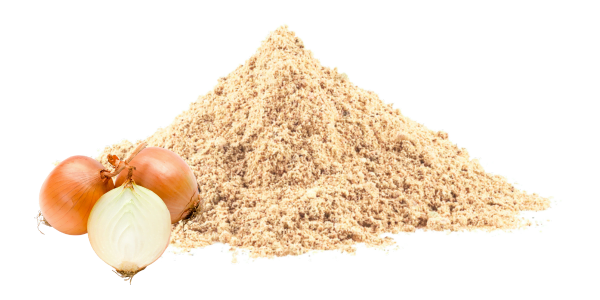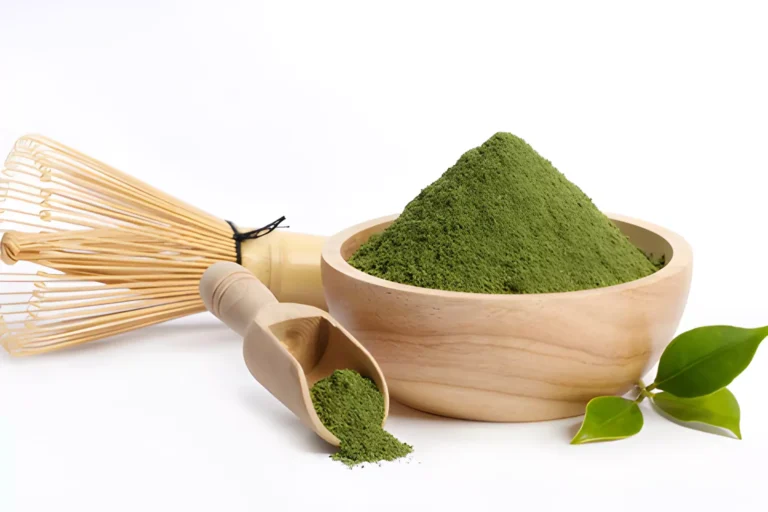Granulated Onion vs Onion Powder: Key Differences and Uses
Onions are a staple ingredient in many cuisines around the world. They add flavor and depth to various dishes, from soups and stews to stir-fries and roasted vegetables. But what happens when you don’t have a fresh onion on hand?
That’s where onion powder and granulated onion come in. In many recipes, these two dried onion products are convenient and easy to use in place of fresh onions. But what are the key differences between granulated onion and onion powder? And when should you use one over the other?
In this article, we’ll take a closer look at granulated onion vs onion powder and discuss their key differences, shelf life, and uses. We’ll also provide tips for using them in recipes and answer some of the most common questions about these two popular ingredients.
What is Granulated Onion
Granulated onion is a dried onion product made from coarsely ground onions. It has a granular texture and a strong onion flavor and aroma. It is available in both yellow and white varieties.
To make granulated onion, onions are first peeled and sliced. Then, they are dried at a low temperature until completely dehydrated. Once the onions are dried, they are ground into a coarse powder.
These onions are a versatile ingredient that can be used in various dishes. It is commonly used in soups, stews, and gravies. It can also flavor meat dishes, vegetables, and side dishes.
What is Onion Powder

Onion powder is made from dehydrated onion pieces. It has a powdery texture and milder flavor and aroma than granulated onion. Onion powder is available in both yellow, white, and red varieties.
To make your own onion powder, first peel the onion slices. Then, they are dried at a low temperature until completely dehydrated. Once the onions are dried, they are ground into a fine powder.
Onion powder is a versatile ingredient that can be used in various dishes. It is commonly used in seasoning blends, dry rubs, and marinades. It can also flavor meat dishes, vegetables, and side dishes.
Granulated Onion vs Onion Powder: The Key Difference
Granulated onion and onion powder are versatile ingredients that can be used in various dishes. However, there are some critical differences between the two products.
Flavor and aroma
Granulated onion has a more robust flavor and aroma than onion powder. This is because it is made from coarsely ground onions, while onion powder is made from finely ground onions. The coarser texture of granulated onion results in a more intense flavor and aroma.
Texture
Granulated onion has a granular texture, while onion powder has a powdery texture. This difference in texture affects how the two products are used in recipes. Granulated onion is often used in recipes where it is essential to have a visible onion texture, such as in meatloaf or stuffing. Onion powder is often used in recipes where it is important to have a smooth texture, such as in soups and sauces.
Uses
Onion powder and granulated onion can be used in a variety of dishes. However, there are some recipes where one product is better suited. For example, granulated onion is often used in recipes where it is important to have a visible onion texture, such as in meatloaf or stuffing. Onion powder is often used in recipes where it is important to have a smooth texture, such as in soups and sauces.
Here is a table that summarizes the key differences between granulated onion and onion powder:
| Characteristic | Granulated onion | Onion powder |
|---|---|---|
| Flavor and aroma | Stronger | Milder |
| Texture | Granular | Powdery |
| Uses | Soups, stews, gravies, meat dishes, vegetables, side dishes | Seasoning blends, dry rubs, marinades, meat dishes, vegetables, side dishes |
Difference Between Shelf Life
Granulated onion and onion powder have a long shelf life when stored properly. Granulated onion has a shelf life of up to 2 years, while onion powder has a shelf life of up to 3 years.
To properly store granulated onion and onion powder, place them in a tightly sealed container in a cool, dark place. Avoid storing granulated onion and onion powder in humid areas, as this can cause them to clump and lose flavor.
Here are some tips for keeping granulated onion and onion powder fresh:
- Store granulated onion and onion powder in a tightly sealed container.
- Store granulated onion and onion powder in a cool, dark place.
- Avoid storing granulated onion and onion powder in humid areas.
- To keep the granulated onion and onion powder fresh for longer, you can freeze them. Frozen granulated onion and onion powder will keep for up to 6 months.
If granulated onion or onion powder starts to clump, you can loosen it up by breaking it up with a fork or grinding it in a spice grinder. However, if granulated onion or onion powder has lost its flavor, it is best to discard it and purchase a new jar.
How to tell if granulated onion or onion powder has gone bad
If granulated onion or onion powder has gone bad, it will have a dull appearance and a weak flavor. It may also have a musty or sour odor. If you notice any of these signs, it is best to discard them.
When to Substitute Granulated Onion for Onion Powder?
In general, in recipes, you can use granulated onion as a substitute for onion powder. However, it is essential to note that granulated onion has a more robust flavor of onion. Therefore, you may need to adjust the amount of granules you use when substituting it for onion powder.
To convert the onion granules and onion powder, use the 1 tablespoon granulated onion = 1/2 tablespoon onion powder. For example, if a recipe calls for one tablespoon of onion powder, you can substitute 2 tablespoons of granulated onion.
The below table shows how much-granulated onion to use in place of onion powder in recipes:
| Onion powder | Granulated onion |
|---|---|
| 1/2 teaspoon | 1 teaspoon |
| 1 teaspoon | 2 teaspoons |
| 1 tablespoon | 2 tablespoons |
| 2 tablespoons | 4 tablespoons |
| 1/4 cup | 1/2 cup |
| 1/2 cup | 1 cup |
When to substitute granulated onion for onion powder:
It is generally appropriate to substitute granulated onion for onion powder in recipes where the onion flavor is not the primary focus of the dish. For example, you could use granulated onion instead of onion powder in a meatloaf recipe, but you might want to use something other than granulated onion instead of onion powder in an onion soup recipe.
Tips for Using Granulated Onion in Recipes
Granulated onion is a versatile ingredient that can be used in various dishes. Here are some tips for using granulated onion in recipes:
- Rehydrate granulated onion: To rehydrate, soak it in warm water for 10-15 minutes before using. This will help soften and give it a fresh onion-like flavor and texture.
- Toast granulated onion: Toasting granulated onion in a dry skillet over medium heat for a few minutes before using can help enhance its flavor.
- Use granulated onion with other herbs and spices: It can be combined with other herbs and spices to create flavorful seasoning blends and dry rubs.
- Add granulated onion to marinades: Adding marinades can help to infuse meat and vegetables with flavor.
- Sprinkle granulated onion on vegetables and side dishes: Sprinkling on vegetables and side dishes before roasting or baking can add extra flavor.
Here are some recipes that use granulated onion:
- Soups and stews: Onion soup, beef stew, chicken pot pie, minestrone, lentil soup
- Meat dishes: Meatloaf, hamburger patties, meatballs, roasted chicken, beef bourguignon
- Vegetable dishes: Mashed potatoes, green bean casserole, roasted vegetables, creamed spinach, macaroni and cheese
- Side dishes: Stuffing, gravy, onion rings, french fries, potato salad
Conclusion
Onion Powder and granulated onion are two versatile and convenient ingredients that can add onion flavor to various dishes. They are both made from dried onions but have different textures and flavors. Granulated onion has a more robust flavor and a coarser texture, while onion powder has a milder flavor and a finer texture.
When choosing between the two, consider the flavor and texture you are looking for in your dish. Granulated onion is a good choice for recipes with strong onion flavor, such as soups, stews, and meat dishes. Onion powder is a good choice for recipes with a more subtle onion flavor, such as seasoning blends, dry rubs, and marinades. Experiment with using them in your recipes to find what you like best.




